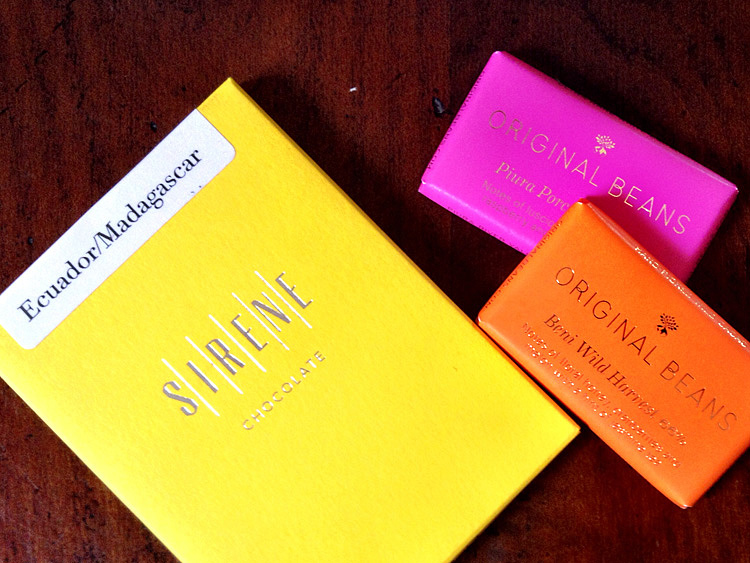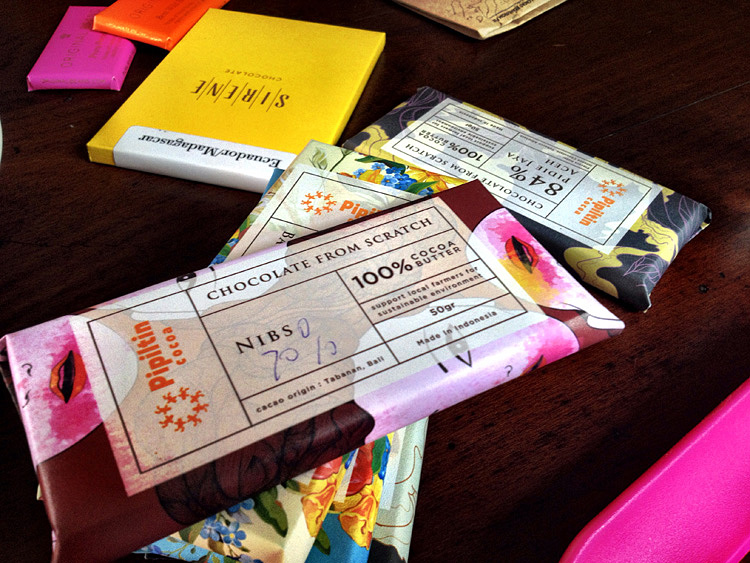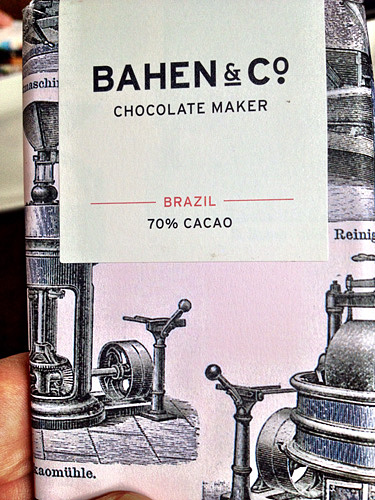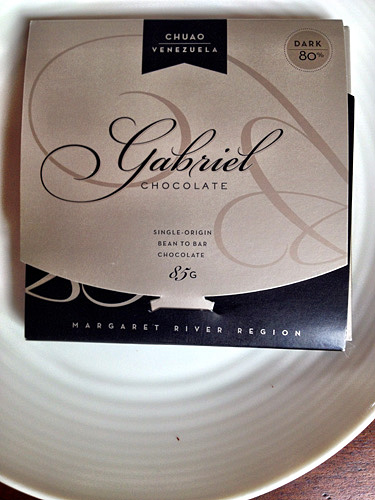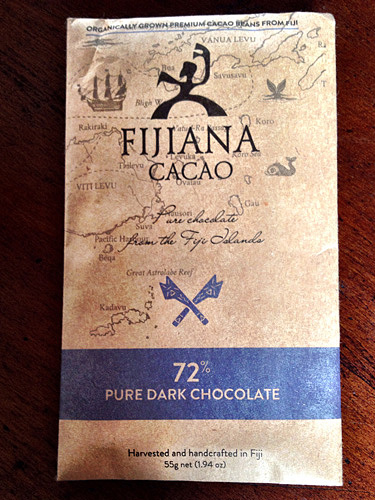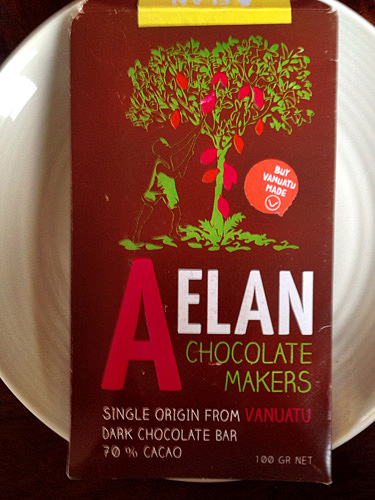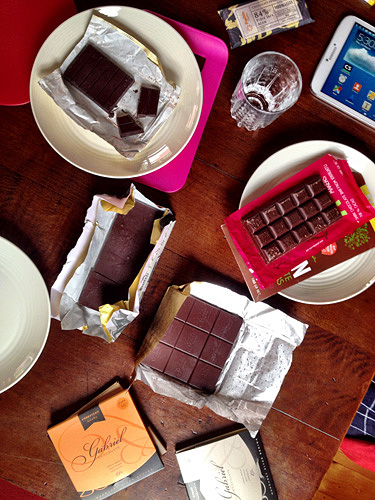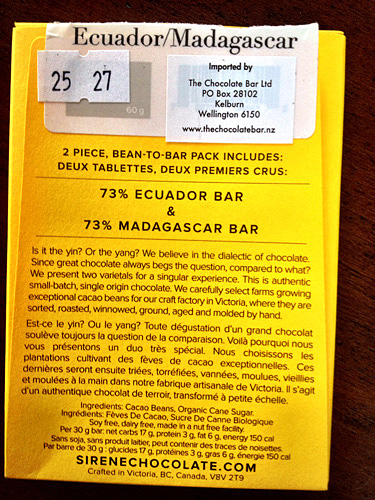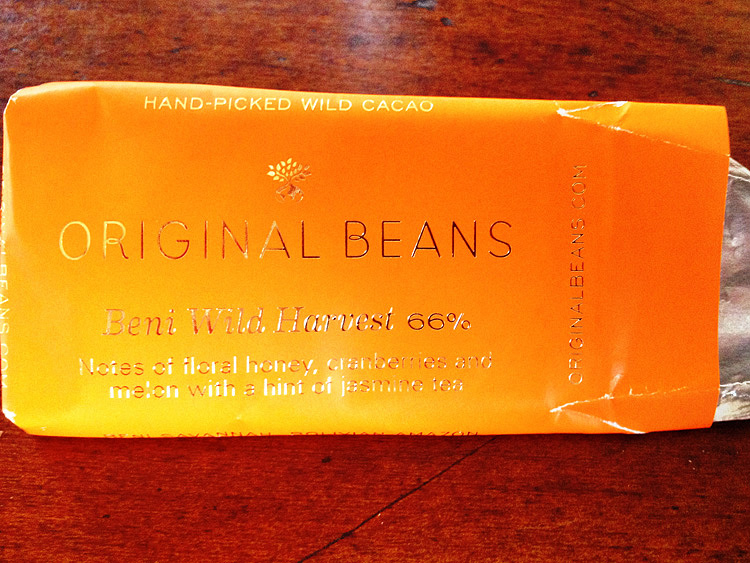Most boutique chocolate companies tell more or less the same story; machinery sourced from all over he world (the older the better), small-scale farmers in exotic places, micro scale production and a vision/passion to make artisan chocolate from bean to bar. With this in mind, how does the average consumer make head or tail of the competition? A tasting is a great place to start. In a recent tasting with Jo Coffey, prior owner of Wellington's L'affair au Chocolat I tasted bars from Canada, Holland, Australia and the Philippines, which all used imported beans, and two locally produced bars from Vanuatu and Fiji. The tasting threw up some surprising results.
Without going into too much detail, the favourites were Gabriel 80% Chuao (Venezuela) and Sirene's Ecuador 70%; someone commented they could eat more of the Fijana 72% due to it's lack of intensity; the Aelan Chocolate from Vanuatu (made with Santo Criollo beans) competed on flavour but suffered from more than a hint of smoke. The least favoured were Indonesia's Pipilten range and Australia's Bahen & Co Brazil 70%.
Getting hold of these bars is not straight forward, some coming from friends (we supplied the two Pacific Island bars) and others from online distributors of which there are at least two based in NZ. Between them they stock some of the highest rated bars made. Amedei is arguably the world's best and is available at All about Chocolate, and very well regarded American brands Taza and Dick Taylor can be found among others at The Chocolate Bar
How good is good chocolate? We had a group of friends for lunch recently and had the chance to compare a bar of Grenada Chocolate Company's 60% organic nib with a favourite New Zealand brand's 'boutique' range. Despite being stored in a fridge for nearly a year and looking much the worse for wear, the Granada chocolate left the competition in the dust and was ecstatically and unanimously praised.
On another occasion, a friend of ours was determined we would not change her preference for her supermarket purchased, NZ made favourite chocolate. After tasting a selection of bars from Pralus (including a 100%), she spat out the NZ product when asked to compare, saying it now tasted like plastic and berated us for destroying her favourite thing.
For those who want to become chocolate snobs, help is here. The International Chocolate Awards are in their 7th year and have become well-known arbiters of good chocolate. They run regional and international awards each year. NZ made bars have already had some favourable reviews and it would be great to see NZ chocolate feature in the awards some day. Photos all taken on phone.
